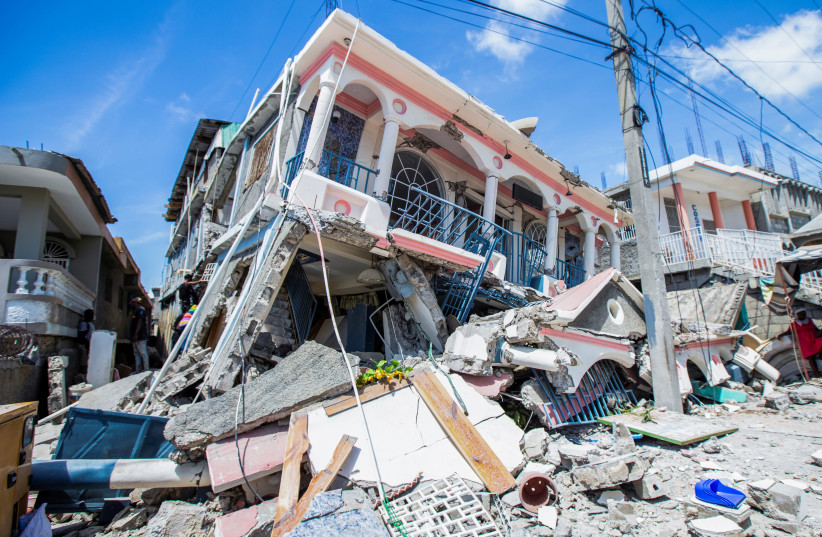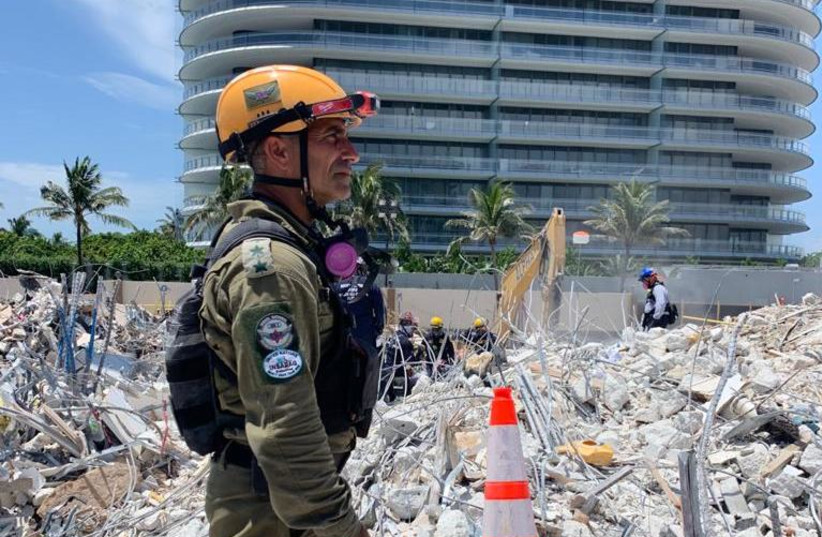Israel has decades of experience in providing aid in the wake of earthquakes and natural disasters, including in Greece in 1953, Mexico in 1985 and Armenia, Greece and Turkey in the 1990s. More recently, Israel provided such aid to India, Sri Lanka, Haiti, Nepal and Mexico.
One reason Israel can help in these disasters is that it has expertise in search and rescue from its own long experience dealing with threats of conflict and natural disasters, including possible earthquakes.
The Jerusalem Post has in the past interviewed those involved in various disaster-relief efforts, including members of the IDF Home Front Command Search and Rescue Unit. A report was published in 2021 for the Post’s Magazine titled “Saving Lives: Israel’s search and rescue teams on frontlines worldwide.” Here are some key takeaways from that article and what it might mean for today’s efforts in Turkey.
Israeli rescue efforts in Haiti
Haiti: Israel assisted efforts after a massive earthquake hit Haiti in 2020, with much of the capital Port-au-Prince either destroyed or damaged. This meant teams not only had to go around the destroyed area to search for survivors under collapsed buildings, but also had to assist the high number of newly homeless and displaced people.

One key issue for people from international delegations who are responding is that there are many opportunities for shared work.
Haiti taught of the need to have information on the ground and locals who could assist. Having the necessary speed to set up a field hospital or other facilities is important, as is getting the right permissions, coordination and equipment. During the mission, Israel established an operation on a soccer field near the airport, assisting more than 1,000 patients.
An article in The New England Journal of Medicine based on Israel’s experience in Haiti noted, “The government of Israel dispatched a military task force consisting of 230 people: 109 support and rescue personnel from the Israel Defense Forces Home Front Command and 121 medical personnel from the IDF Medical Corps Field Hospital. The force’s primary mission was to establish a field hospital in Haiti.”
The delegation also recounted their experiences, with one member saying, “We landed in Port-au-Prince 15 hours after leaving Tel Aviv, and began to deploy immediately. The first patients arrived at our gates and were admitted even before the hospital was fully built, within eight hours after our equipment arrived. In its 10 days of operation, the field hospital treated more than 1,100 patients.”
The report noted that one of the difficulties was not only the lack of inpatient beds but also the need to set triage priorities among incoming patients. These issues lead to difficult choices after a disaster if resources are lacking.
Israeli aid during the Surfside collapse
Surfside: Israel assisted the rescue efforts in Miami after the Surfside condominium building collapse in 2021. The key to finding survivors in a collapsed building is to conduct the search within the first 72 hours to aid survivors who may be injured or lack access to water.
One of the difficulties in Miami was that a fire broke out at the site. According to WSVN.com, which reported on the aftermath of the collapse, the fire posed a challenge for the numerous responders who came from across the state to help.

“As the third day of a massive rescue mission at Champlain Towers’ South Tower dawned on Saturday, first responders continued to work around the clock,” the report noted. “We did make some progress with the fire and the smoke, and we were able to continue searching with fewer limitations,” an official said at the time.
Other key aspects of initial rescue efforts include utilizing the knowledge of the local community. This is key not only due to language barriers but also to knowing the layout of the area.
There may also be buildings housing undocumented residents or buildings where existing plans don’t include add-ons. In other cases where people are trapped under the rubble there are concerns about further aftershocks or other threats, such as fires and fuel spills. There is also the issue of how to delicately move rubble to get to survivors, while also working against the clock.
Technology for search and rescue teams has improved in recent years. There is now technology to help map an area, determine what it looked like before the destruction and estimate where survivors are most likely to be found.
This kind of technology can be networked into layers of data to determine where hospital beds might be available. It can also be used to track systems, such as water and electricity. Turkey is an advanced country and has the means, technology and experience from past earthquakes to recognize many of the challenges it faces.
